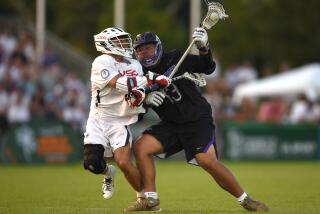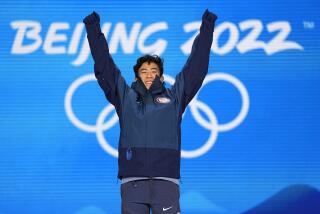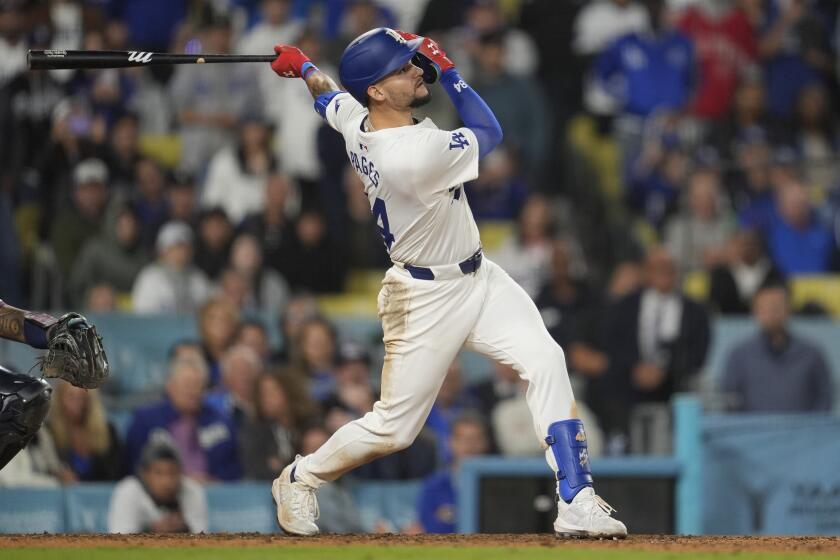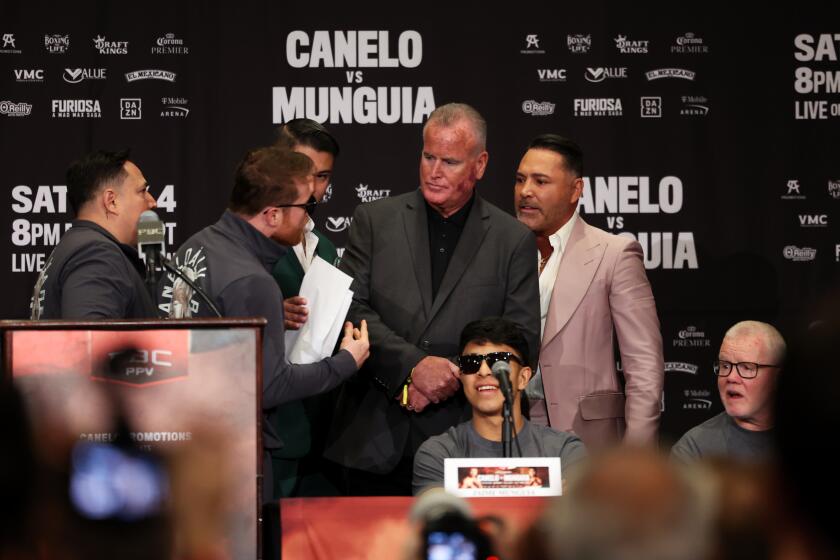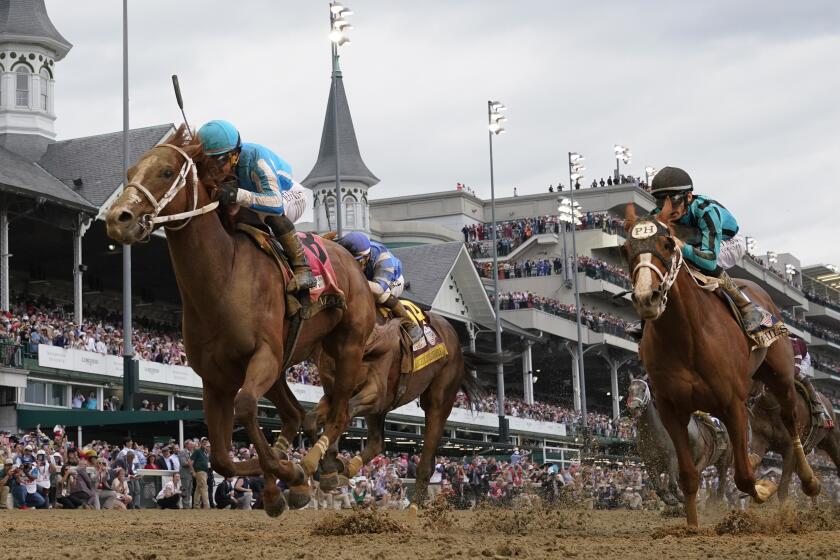Tony Gunawan, Howard Bach to take best shot in Olympics
This is the 11th story in a series looking at local athletes as they try to make the Olympic team.
Chasing Olympic medals can put a real strain on a family.
Take Tony Gunawan as an example. He’ll be playing badminton in England, eight time zones from home, when his youngest son turns 2 in August.
And while he’s away, his wife, Eti, will have to teach the private — and expensive — lessons Gunawan gives at the San Gabriel Valley Badminton Club. It will mean less sleep for her but lots of overtime for the family baby sitter.
“For now, she’s handling it pretty well,” says Gunawan, who will be hoping for his second Olympic gold medal in the men’s doubles this summer. “It’s very tough on her.”
A little surprising too, because for months Gunawan and playing partner Howard Bach had said they wouldn’t compete in the London Games unless they had a legitimate shot at a medal, something they defined as a spot in the top 10 in the Badminton World Federation rankings. But despite having spent only two weeks inside the top 20 this year, they now say they’re going anyway.
So why the change of heart?
Blame Canada.
If Gunawan and Bach, former world champions and current Pan American Games titlists, had passed up the Olympics, their spot in London probably would have gone to the Canadian duo of Adrian Liu and Derrick Ng, the regional runners-up.
And USA Badminton wasn’t about to let that happen.
“We were like, ‘Hey, you know what? It’s better if we go then let the Canadians go,’” Bach says now.
But nothing personal, eh, Canada?
“Not necessarily Canada, but for [any] other country,” Gunawan says. “If our second place is U.S., then I’m pretty sure I’d let it go.”
Yet regardless of why Gunawan and Bach are heading to London, the decision may ultimately prove to be a wise one. Despite their rankings, the pair has played well against many of the teams in the top 10. And they still have next month’s Thomas Cup in China and the Indonesia Open in June.
They’ll also get a boost from a change in the Olympic competition. In the past, it was single elimination, where one mistake could be enough to send a team home. But this year the first round will be conducted in a pool-play format, meaning a typically slow-starting team like Gunawan-Bach could lose its first match yet still advance to the next round.
“It sets up really good for them because they’re going to get three matches,” says Dan Cloppas, USA Badminton’s executive director.
A bigger problem still plaguing the team is the lack of quality sparring partners in the U.S., which remains a badminton backwater. It often takes Gunawan, two weeks past his 37th birthday, and Bach, two months past his 33rd, a match or more to adjust to the speed of international badminton, in which shots can travel at more than 200 mph. To help alleviate that, Cloppas says the U.S. Olympic Committee will provide the team with world-class practice partners for several weeks leading up to the Olympics, then pay for at least two sparring partners to accompany Gunawan and Bach to London.
“If we really didn’t think that they had a chance to win a medal and if the USOC — which has seen them in several events, at the world championships and other places — didn’t think that they’re of that quality, they would not be wasting the money,” Cloppas said. “So we all think that they have a shot.”
A long shot, perhaps, but one worth taking. The U.S. has never won a medal in badminton, a sport still struggling for attention and funding in a country where it’s considered something you do at a picnic, not in the Olympics.
But in betting on Gunawan, the odds improve drastically.
A former Olympic champion and two-time world champion from Indonesia, Gunawan is widely considered one of the top doubles players of all time. After his first world title in 2001, he retired as a player and emigrated to the U.S. with Eti, also an Olympian in badminton, to help develop the sport here as coaches.
But it soon became apparent the best way to teach the game would be to play it. So Gunawan came out of retirement and teamed with Bach to win the world doubles title in 2005, the only medal the U.S. has won in either the Olympics or world championships.
In September he was sworn in as a U.S. citizen, making him eligible to compete in last fall’s Pan American Games, which he and Bach won easily to qualify for the Olympics.
That left USA Badminton and the USOC with the next challenge: persuading Gunawan and Bach to go to London.
“Do I think that it’s a guarantee that we’re going to win a medal? No. But on any given day they can beat anybody,” Cloppas says of the pair, who proved their fitness by winning last week’s XXVII Peru International in Lima. “So why would you throw that away? The USOC doesn’t think we should throw it away. I don’t think we should throw it away. Because it will be huge if they do win.
“I think they realized what a medal would do for the U.S. It would just really, really help.”
Regardless of what happens in London, Gunawan, who lives in West Covina, says the Olympics is positively, absolutely his final major competition. Unless, of course, he changes his mind and decides to play in another one.
“We still have some — what do you call it? — some fire. Some desire,” he says. “We still can make it. You never know.
“[But] this is really, really our last sprint. I have two kids. I have to work, coach. The finish line is the Olympics.”
And because of that, he and Bach plan to take in more of the experience — such as the opening and closing ceremonies — than they have in the past.
“I might go to my very first closing,” says Bach, a native Vietnamese who lives in Anaheim and will be competing in this third Games with his third partner. “Every chance I get, I tell other individuals and players and other Olympians, I’m like, ‘You know what? Just go, because you never know if you’re going to come back.’”
More to Read
Get our high school sports newsletter
Prep Rally is devoted to the SoCal high school sports experience, bringing you scores, stories and a behind-the-scenes look at what makes prep sports so popular.
You may occasionally receive promotional content from the Los Angeles Times.
